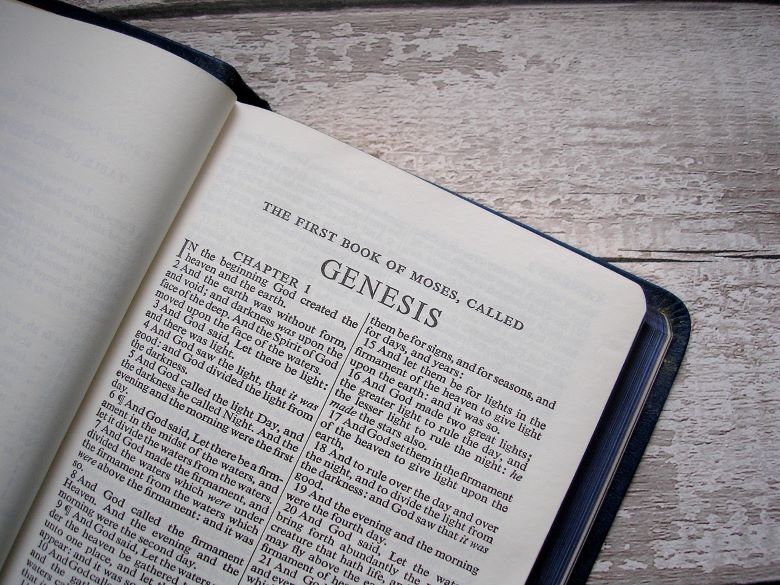
The God worshipped by Jews and Christians has been described as powerful, mighty, creator, emancipator, savior. He has been seen as merciful, as vengeful, as omniscient, as omnipresent, as eternal.
He has not often been described as as funny.
We know that humor and irony were used by the writers of the Hebrew Bible. Hershey Friedman and Linda Friedman, in their paper, “Humor of the Hebrew Bible,” cite several examples of how humor was used by the Bible authors. They conclude that several types of humor are present.
This article demonstrates that the Hebrew Bible is replete with its own special brand of humor. There are no jokes in the Bible but there is an abundance of wit and humor. Some of the types of humor found in the Hebrew Bible include sarcasm, irony, wordplays, humorous imagery, and humorous stories and situations. Much of this humor can only be appreciated if read in the original Hebrew and not in a translation.
Since, to the believer, the Bible is a moral document, not merely an entertaining “storybook,” one might be moved to consider the purpose of using humorous devices in the Holy Scriptures. An examination of the collection in this paper brings at least one important purpose to mind: Humor brings God closer to humankind.
Clearly, He who sits in heaven does laugh.
What the article does not fully explore, however, is whether YHWH, himself uses humor in his dealings with his people.
Does God use humor in dealing with the Israelites?
While he is seen primarily as a serious deity in the Hebrew Bible (or in in the Christian version, the Old Testament), I would suggest that in his dealings with his people, YHWH uses humor and even irony and possibly even mocking language in his interactions with the Israelites.

In Genesis 11:7-9), in the story of the building of the Tower of Babel, YHWH decides to “go down and there confuse their language, so that they may not understand one another’s speech.” He goes on to name the tower “Babel” which is a play on the meaning of the Hebrew word for “confused.” Of course, its cognate, “babble” has come down to us in English.
Does YHWH mock his enemies?
In 1 Kings, Chapter 18, YHWH, working through the prophet Elijah, mocks 450 of the priests of Ba’al and 400 of the priests of Asherah. Elijah has set something of a trap for the prophets of Ba’al and Asherah, tempting them to call on the power of their gods and when they fail and YHWH succeeds to start a fire on the altar, the prophets of Ba’al and Asherah are mocked by the assembled Israelites and then killed by them. A grim joke indeed!
In 2 Kings 19:5-7, YHWH mocks the King of Assyria because the king’s servants have mocked YHWH. YHWH fools or tricks the King by putting “a rumor” in his head so that he will return home to verify the rumor and there perish by his own sword.
Does God make fun of the faithful?
In the Book of Job, Chapters 38-41, Job, who is beset at all times with tests, trials and difficulties, questions the justice of YHWH. Instead of giving Job a simple answer, YHWH poses a seemingly endless series of questions to him in an attempt to show Job the vastness and complexities of creation.
It is almost impossible, here, not to be reminded of the trope in American Jewish humor of the rabbi or the parent or other authority figure answering a question with a question. Henick and Aron explore this topic more fully in their book, Answering a Question with a Question. In the book, they examine the ways in which inquiry has enhanced the experiences of Jewish people through history.
Does YHWH toy with Moses?
Perhaps the best examples of YHWH’s use of humor in dealing with his people are found in the book of Exodus. In chapter 3, in the burning bush episode, Moses, in receiving his instructions from YHWH to begin the process of freeing the Israelites for Egyptian control, asks YHWH whom should he tell Pharoah is calling for the release of the Israelites.

YHWH’s answer can be seen as quite amusing: He tells Moses to tell Pharoah ‘Ehyeh-Asher-Ehyeh,” “I am who I am” or “I will be who I will be.”
This of course, is not a real answer and I would suggest that YHWH, possibly in his frustration or anger with the Israelites’ situation, is joking with Moses. In expanding the joke, YHWH tells Moses, “Tell them ‘I am’ sent you.”
I would be remiss if I did not state here that many theologians, historians and scholars have made those statements by YHWH in the Book of Exodus the subject of countless essays, articles and papers and have elevated these enigmatic statements by YHWH to lofty heights of erudition and exaltation. I do not believe that those interpretations capture the meaning of the Biblical authors. I believe that they were portraying YHWH’s most human-like characteristics of frustration and the humor that can sometimes relieve it.
YHWH tell Moses his name.
YHWH finally tells Moses his name. He tells him that he, YHWH, was previously known to Israel as El-Shaddai but that his actual name is YHWH. YHWH emphasizes this in Exodus, Chapter 3, verse 18 when he tells Moses to go with the elders to Pharoah and tell him that YHWH is the god of Israel.
In Chapter 33 of the Book of Exodus, Moses asks YHWH to show him his glory. YHWH tells Moses he will do good to those to whom he will do good and will show love and mercy to those whom he chooses but he will not show his face to Moses because no one can see his face and live. YHWH then tell Moses to hide in a cleft between two rocks and then YHWH will pass by, covering Moses’s eyes with his hand and will then remove his hand after his passing so that Moses can see his back…or back parts…or backside. The passage actually borders on crude mockery.
Can we conclude that YHWH jokes with his people?
Most certainly, the God of the Hebrew Bible is portrayed most frequently as a solemn and serious deity but one of the most well established characteristics of Jewish people is their ability to laugh at themselves and to utilize humor to ameliorate some of the suffering that they have endured at the hands of many others in their long history. There is more reason to believe that the authors of the Hebrew Bible would present their views of YHWH with the same humor that has been associated with their culture for thousands of years as there is to believe that the God of Israel would be devoid of this most human characteristic. This is especially true if we remember that Adam and Eve were formed in his own likeness.














